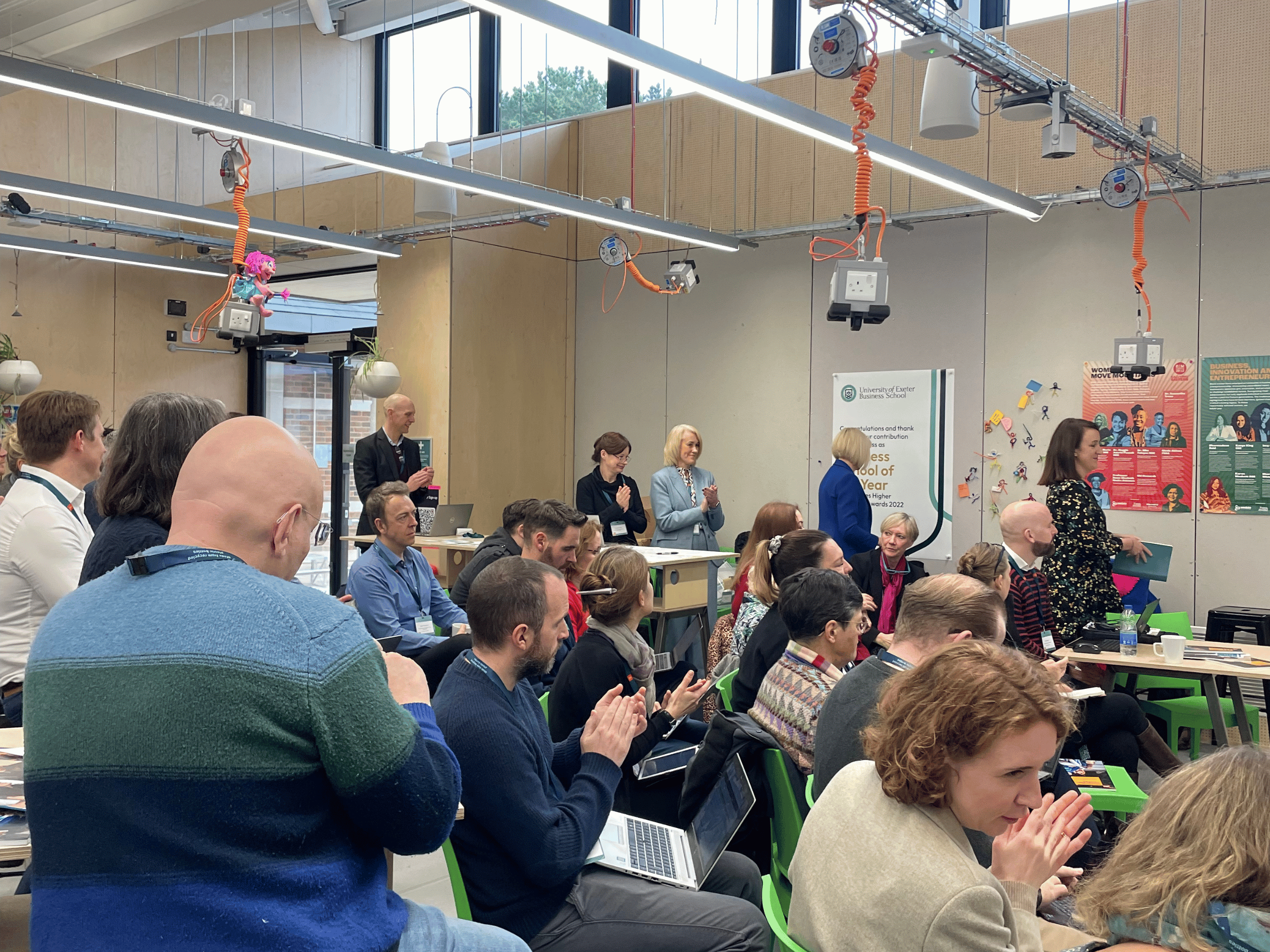Last month the University of Exeter hosted the first event of Jisc’s Demonstrating Digital Transformation 2023/24 event series, focused around how we are turning the University’s digital vision into reality. We recently shared a blog post written by Rebecca Jeavons about her experience of participating in her first ever panel discussion at this event – take a look here.
As we begin our second year of delivering our 2030 digital strategy, this event was the perfect opportunity for us to share our experiences to date and have meaningful, honest conversations with our industry peers to enable us to share and learn from one another. We held multiple round table discussions throughout the day, covering a range of topics including Design Thinking, agile working, our data-led culture, and digital skills. Read this blog post to learn about each round table discussion and their key takeaways.
Theme 1: Design Thinking – The benefits of getting comfortable being uncomfortable in the problem space
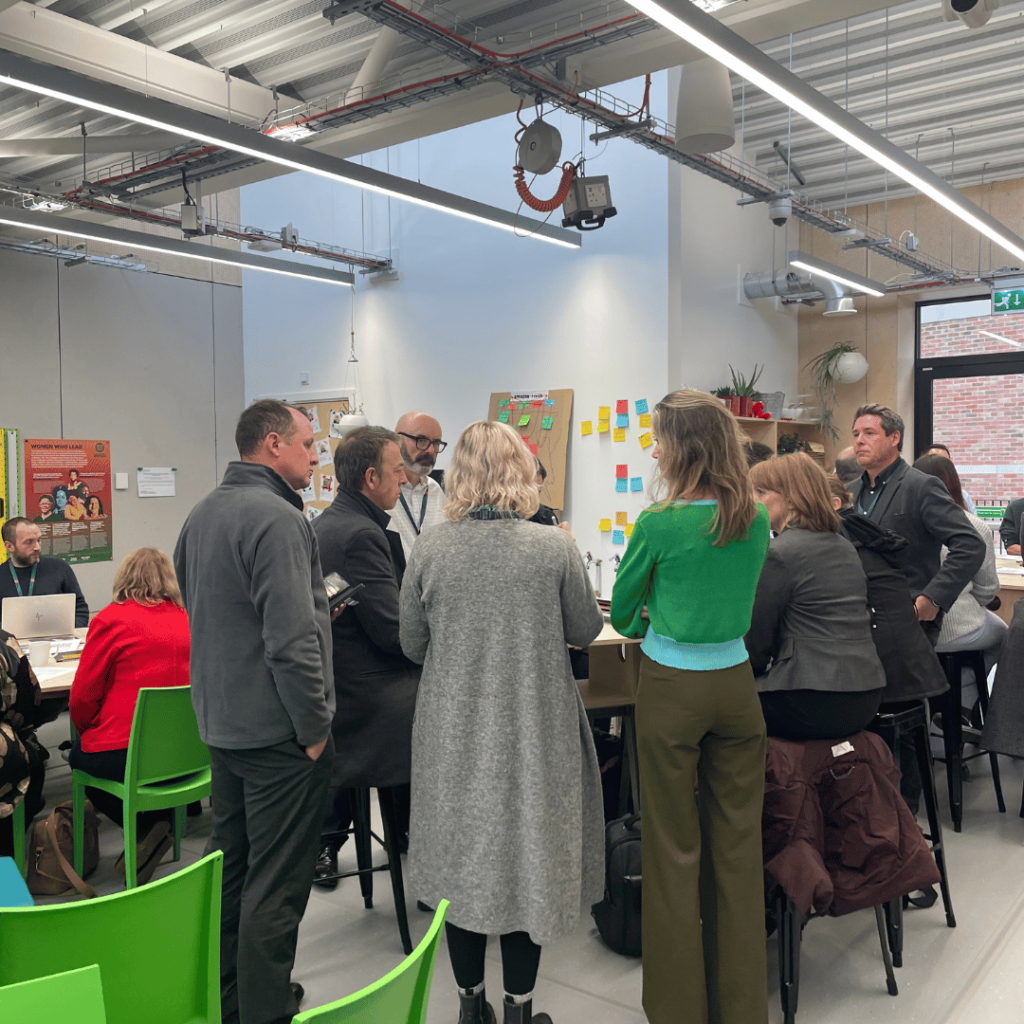
“During this round table, we discussed using Design Thinking to break down silos and avoid groupthink, and how it helps senior leaders see that transformation is not just about technology, it’s about people and processes. One key finding from this discussion was the importance of broadening your search in the process of Design Thinking through recruiting wider stakeholders and less engaged students and colleagues. Another takeaway was the value in mapping processes with multiple teams to ensure understanding of challenges and potential solutions.”
– Joe Holland, Design Chapter Lead for Digital at the University of Exeter
Theme 2: The educator perspective on digital transformation
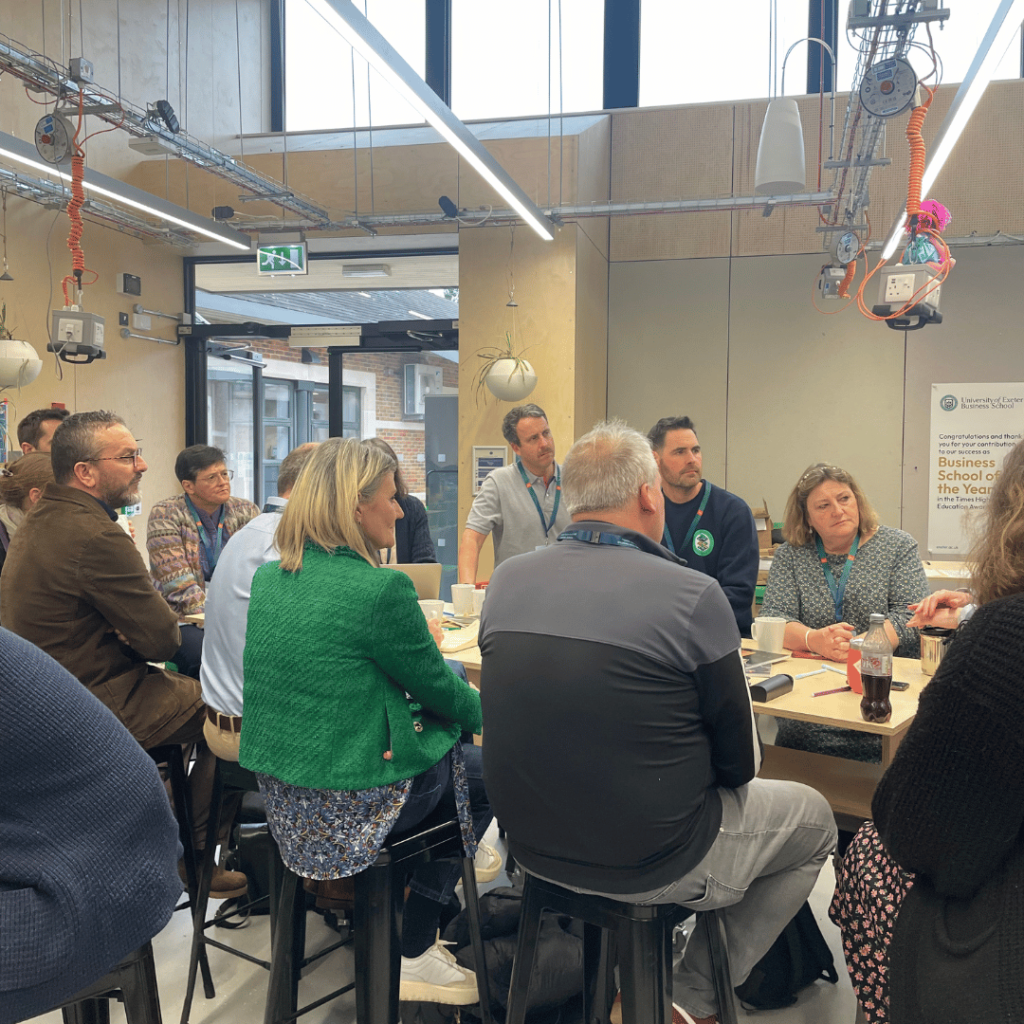
“Raphael Dennett and I hosted two very active round table discussions focused on the role of Educators in the digital transformation of universities. There were a large number of participants from a wide variety of roles, which was very encouraging. There was general agreement on the need for culture change to support and reward the agile, multi-disciplinary teamwork needed to “make stuff happen”. This means putting people first, not technology.
Other common themes concerned the importance of directly involving students by responding to their ideas and concerns, and updating assessment priorities to better prepare them for living, learning and working in a digital world. The pandemic was mentioned as evidence that change really could happen at speed, but while some examples of lasting benefits were shared, in some places pressure for “back to normal” had reversed many of the gains made.”
– Lisa Harris, Director of Digital Learning at the University of Exeter
Theme 3: Agile ways of working vs Waterfall – what agile ways of working can do for a traditional waterfall organisation
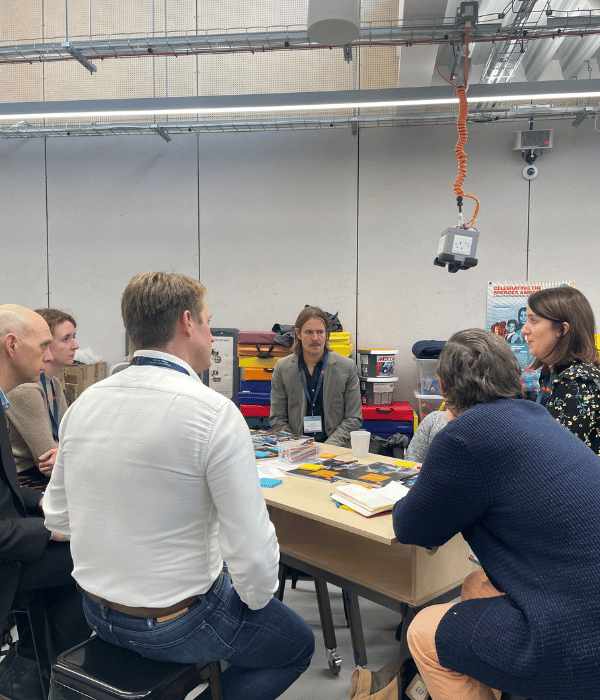
“To begin the discussion, we shared how we introduced the Digital team to Agile and Scrum methodologies:
- Step 1 – Recruiting the our first Scrum Master. This role is vital to the successful adoption of scrum, as the scrum master provides guidance, coaching, support, and facilitation, alongside helping to remove any obstacles that teams may encounter throughout their sprints.
- Step 2 – Agile at the Zoo! We planned an activity which showcased to the Digital team how the iterative scrum approach promotes adaptability and resilience to change. The whole afternoon of building a ‘leopard love shack’ operated in a sprint framework with scrum events, enabling effective communication and creating opportunities to gather feedback from stakeholders and respond to this.
Following this, the Digital team began using scrum methods to build our products. Alongside this, we wanted to share the journey and our learnings with the rest of the organisation, which led to Step 3 – Developing an Agile Community Of Practice to enable other departments to adopt agile – learn more about this here. In true agile fashion, at the end of each session we retro’d – inviting the participants to share their feedback under two headings of ‘what went well’ and ‘what could we improve next time’.”
– Emily Prevatt, Operations Chapter Lead for Digital at the University of Exeter
Theme 4: Bringing digital skills into our mainstream cycles
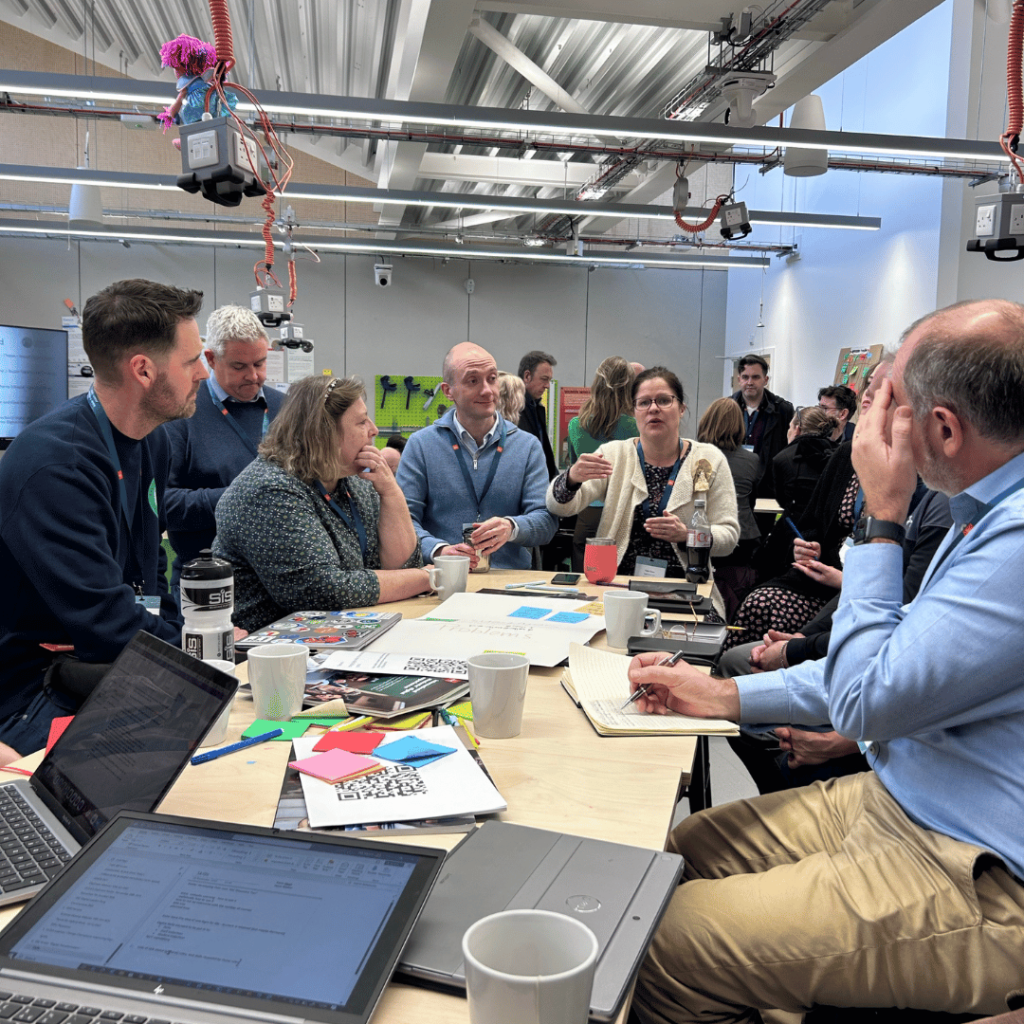
“We led a roundtable outlining the Digital Skills Strategy that UoE are currently developing to upskill all staff and students in all things digital. Participants were keen to share their thoughts and ideas around key challenges that they’re facing as part of their upskilling approaches at their HE or FE institutions; including getting “buy-in” from stakeholders, difficulties in appropriating time for training and the need for positive testimonials and effective communications.”
– Dave Weller and Katie Steen, Digital Skills Leads at the University of Exeter
Theme 5: Data-led culture
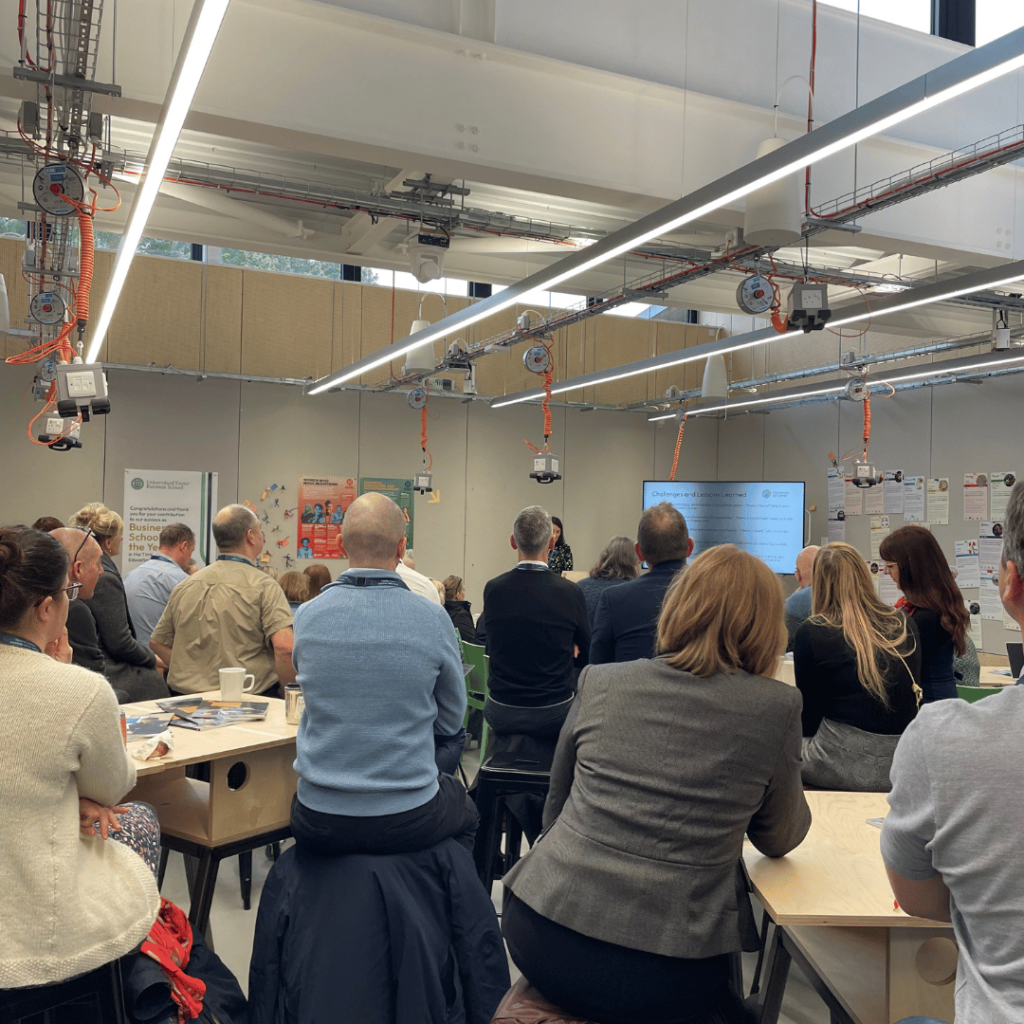
“I shared the University of Exeter’s initial work to enhance data literacy across the University, most notably through the development of our new University Data Community. This prompted some very valuable discussions with like-minded HE data professionals from across the UK.
While all participants agreed on the importance of establishing a data-led culture at all levels of the institution, numerous challenges were identified. These included difficulties defining data literacy, a lack of trust in institutional data, poorly established data ownership, and a lack of strategic drive.
Data Literacy is an emerging area of strategic importance for universities. Some institutions have started to implement relevant training and user-led communities but there is much more work to be done.”
– Dan Isaac, Business Intelligence Officer & Data Visualisation Specialist at the University of Exeter
We will be showcasing the University of Exeter’s digital transformation journey at the Times Higher Education Digital Universities UK conference in April 2024, hosted by us! Find out how you can come along here.

